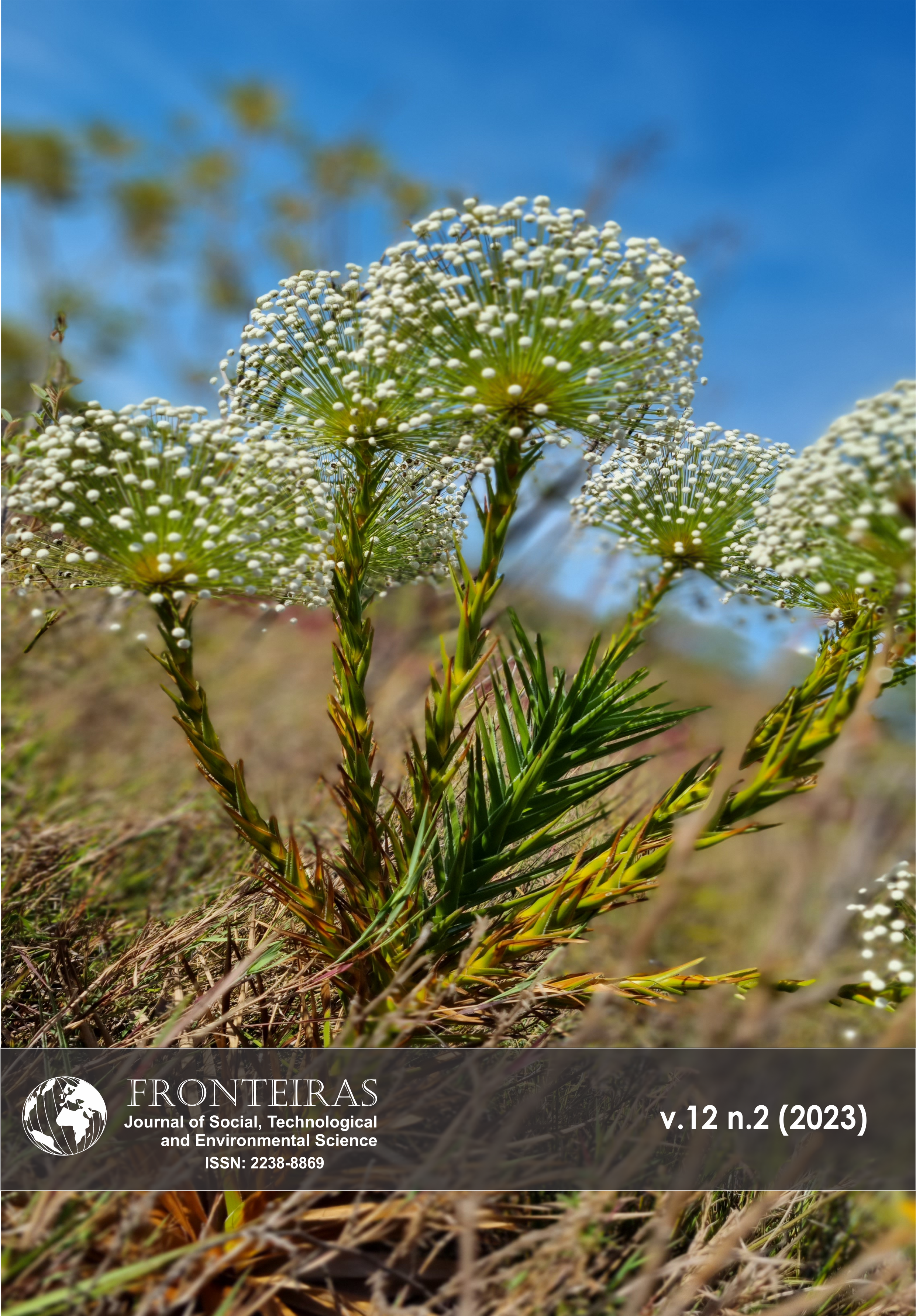Percepções dos Consumidores em Relação à Carne Cultivada
DOI:
https://doi.org/10.21664/2238-8869.2023v12i2.p89-97Palavras-chave:
aceitação do consumidor, agronegócio, carne sintéticaResumo
A carne cultivada tem sido apontada como uma possibilidade de atender à crescente demanda por proteína animal e reduzir o impacto ambiental. Entretanto, alcançar a aceitação do consumidor tem sido um desafio. Diante disso, o objetivo deste estudo foi analisar a evolução do debate acadêmico e a percepção dos consumidores em relação à carne cultivada, a partir da literatura científica. Metodologicamente, realizou-se uma pesquisa bibliométrica com o auxílio do Software Bibliometrix (RStudio Software). Como base de dados foi utilizada o Scopus considerando as seguintes palavras chaves "Cultured Meat” OR "Synthetic Meat" AND “Consumer” OR “Perception” sendo selecionados, documentos em formato de artigos, publicados na língua inglesa, sem delimitação temporal. A partir desta busca e refinamento, resultaram 25 documentos. Trata-se de um tema bastante inovador no campo científico, sendo que a primeira publicação surge a partir de 2015 e ganha maior expressividade em 2022. Posteriormente, se realizou uma análise sistemática de 23 artigos, a partir de critérios de exclusão de documentos que não atendiam aos objetivos pretendidos. Como resultado, se constatou que o bem-estar animal, preocupação ambiental e curiosidade são os principais fatores propulsores ao consumo desse alimento. Por outro lado, a neofobia alimentar, ou seja, relutância em provar alimentos novos é o fator inibidor da intensão de consumir carne cultivada. Conclui-se, portanto, que a sociedade, está moderadamente preparada para consumir este produto, embora novos estudos sejam importantes para identificar o perfil dos consumidores.
Referências
Bryant, C., & Barnett, J. (2018). Consumer acceptance of cultured meat: A systematic review. Meat science, 143, 8-17. https://doi.org/10.1016/j.meatsci.2018.04.008
Bryant, C.; Sanctorum, H. (2021). Alternative proteins, evolving attitudes: Comparing consumer attitudes to plant-based and cultured meat in Belgium in two consecutive years. Appetite, v. 161, p. 105161.
Escribano, A. J., Peña, M. B., Díaz-Caro, C., Elghannam, A., Crespo-Cebada, E., Mesías, F. J. (2021). Stated preferences for plant-based and cultured meat: A choice experiment study of Spanish consumers. Sustainability, 13(15), 8235. https://doi.org/10.3390/su13158235
Faletar, I.; Cerjak, M. (2022). Perception of Cultured Meat as a Basis for Market Segmentation: Empirical Findings from Croatian Study. Sustainability, v. 14, n. 12, p. 6956. https://doi.org/10.3390/su14126956
Franceković, P., García-Torralba, L., Sakoulogeorga, E., Vučković, T., & Perez-Cueto, F. J. (2021). How do consumers perceive cultured meat in Croatia, Greece, and Spain? Nutrients, 13(4), 1284.
Gousset, C., Gregorio, E., Marais, B., Rusalen, A., Chriki, S., Hocquette, J. F., & Ellies-Oury, M. P. (2022). Perception of cultured “meat” by French consumers according to their diet. Livestock Science, 260, 104909. https://doi.org/10.1016/j.livsci.2022.104909
Hwang, J., You, J., Moon, J., & Jeong, J. (2020). Factors affecting consumers’ alternative meats buying intentions: Plant-based meat alternative and cultured meat. Sustainability, 12(14), 5662. https://doi.org/10.3390/su12145662
Lin-Hi, N., Schäfer, K., Blumberg, I., & Hollands, L. (2022). The omnivore’s paradox and consumer acceptance of cultured meat: An experimental investigation into the role of perceived organizational competence and excitement. Journal of Cleaner Production, 338, 130593.https://doi.org/10.1016/j.jclepro.2022.130593
Mancini, M. C.; Antonioli, F. (2019). Exploring consumers' attitude towards cultured meat in Italy. Meat Science, v. 150, p. 101-110.https://doi.org/10.1016/j.meatsci.2018.12.014
Mancini, M. C.; Antonioli, F. To what extent are consumers’ perception and acceptance of alternative meat production systems affected by information? The case of cultured meat. Animals, v. 10, n. 4, p. 656, 2020. https://doi.org/10.3390/ani10040656
Oliveira, G. A., Domingues, C. H. D. F., & Borges, J. A. R. (2021). Analyzing the importance of attributes for Brazilian consumers to replace conventional beef with cultured meat. Plos one, 16(5),
https://doi.org/10.1371/journal.pone.0251432
Piochi, M., Micheloni, M., & Torri, L. (2022). Effect of informative claims on the attitude of Italian consumers towards cultured meat and relationship among variables used in an explicit approach. Food Research International, 151, 110881.https://doi.org/10.1016/j.foodres.2021.110881
Rombach, M., Dean, D., Vriesekoop, F., de Koning, W., Aguiar, L. K., Anderson, M., Boereboom, A. (2022). Is cultured meat a promising consumer alternative? Exploring key factors determining consumer's willingness to try, buy and pay a premium for cultured meat. Appetite, 179, 106307.https://doi.org/10.1016/j.appet.2022.106307
Ruzgys, S.; Pickering, G. J. (2020). Perceptions of cultured meat among youth and messaging strategies. Frontiers in Sustainable Food Systems, 4, 122. https://doi.org/10.3389/fsufs.2020.00122
Shaw, E.; Iomaire, M. M. C. (2019). A comparative analysis of the attitudes of rural and urban consumers towards cultured meat. British Food Journal. https://doi.org/10.1108/BFJ-07-2018-0433
Verbeke, W., Marcu, A., Rutsaert, P., Gaspar, R., Seibt, B., Fletcher, D., & Barnett, J. (2015). ‘Would you eat cultured meat?’: Consumers' reactions and attitude formation in Belgium, Portugal and the United Kingdom. Meat science, 102, 49-58. 10.1016/j.meatsci.2014.11.013
Verbeke, W., Hung, Y., Baum, C. M., & De Steur, H. (2021). The power of initial perceived barriers versus motives shaping consumers’ willingness to eat cultured meat as a substitute for conventional meat. Livestock Science, 253, 104705.https://doi.org/10.1016/j.livsci.2021.104705
Wang, O., & Scrimgeour, F. (2022). Consumer segmentation and motives for choice of cultured meat in two Chinese cities: Shanghai and Chengdu. British Food Journal. https://doi.org/10.1108/BFJ-09-2021-0987
Downloads
Publicado
Como Citar
Edição
Seção
Licença
Esta revista oferece acesso livre imediato ao seu conteúdo, seguindo o princípio de que disponibilizar gratuitamente o conhecimento científico ao público proporciona maior democratização mundial do conhecimento.
A partir da publicação realizada na revista os autores possuem copyright e direitos de publicação de seus artigos sem restrições.
A Revista Fronteiras: Journal of Social, Technological and Environmental Science segue os preceitos legais da licença Creative Commons - Atribuição-NãoComercial 4.0 Internacional.


